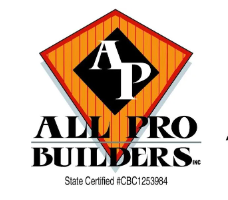Key Questions to Ask Before Starting Any Remodeling Project
Starting a home remodeling project can feel overwhelming, especially when you're unsure what remodeling questions to ask to ensure success. Whether you're planning a kitchen renovation, bathroom update, or adding more space to your home, asking the right questions to a contractor before renovation begins can save you time, money, and stress throughout the entire process. The difference between a smooth renovation and a problematic one often comes down to thorough preparation and clear communication with your contractor.
This comprehensive guide covers the essential questions about remodeling that every homeowner should ask their renovation contractor, helping you make informed decisions and set realistic expectations. From understanding permits and timelines to clarifying costs and communication protocols, these home remodel questions will prepare you for every aspect of your upcoming project and ensure you're asking the right questions to ask a builder when renovating your home.
Key Takeaways
- Always verify your contractor's licensing, insurance, and local permits before signing any agreements to protect yourself legally and financially.
- Establish clear communication protocols and project timelines to avoid misunderstandings and keep your renovation on track.
- Understand all costs upfront, including potential additional expenses, to create a realistic budget with appropriate contingency funds.
- Discuss material selections, quality standards, and cleanup procedures early to ensure your expectations align with the contractor's practices.
- Plan for potential disruptions to your daily routine and have contingency plans for delays or unexpected complications.
- Review references, past work examples, and warranty information to ensure you're working with a qualified professional.
Is the Contractor Properly Licensed and Insured?
This question forms the foundation of contractor selection because working with unlicensed or uninsured professionals exposes you to significant legal and financial risks. A properly credentialed contractor protects you from liability issues, ensures code compliance, and demonstrates professional competency.
Legitimate contractors readily provide current licensing information, including their general contractor license number and any specialized certifications like electrical contractor credentials. Verify this information independently with your state's licensing board rather than simply trusting provided documentation. Licensed contractors understand local building codes and maintain the insurance coverage necessary to protect your property and their workers.
Insurance verification proves equally critical for protecting your interests. Request certificates for both liability insurance and workers' compensation coverage, then contact the insurance companies directly to confirm active policies. This verification protects you from potential lawsuits if workers are injured on your property or if accidents damage your home during construction.
For specialized work involving electrical systems, plumbing modifications, or structural changes, confirm your contractor holds appropriate trade licenses or works with licensed subcontractors. Kitchen renovations often require electrical updates, while bathroom remodeling may involve plumbing relocations that demand proper licensing and permit compliance.
What Is the Realistic Timeline for Your Remodeling Project?
Understanding realistic timelines prevents frustration and helps you plan around construction disruptions. Different remodeling projects require varying timeframes, and experienced contractors can provide accurate estimates based on scope, complexity, and local permit requirements.
Kitchen remodeling projects typically require 6-12 weeks, depending on the extent of changes, cabinet delivery schedules, and appliance installations. Bathroom renovations usually take 3-6 weeks, while home additions can extend several months due to foundation work, framing, and multiple inspection phases. Request detailed project schedules that break down each construction phase with realistic milestone dates.
Several factors can impact your timeline beyond the contractor's control. Permit approval processes, material delivery delays, weather conditions, and inspection scheduling all influence completion dates. Understanding these variables helps you plan accordingly and reduces frustration when unavoidable delays occur. Ask contractors how they typically handle these situations and what buffer time they include in their estimates.
Clarify working hours, site access requirements, and noise considerations, especially for occupied renovations. Most contractors work standard business hours, but some projects may require evening or weekend work to minimize disruption. Discuss how workers will access your home, parking arrangements, and protocols for maintaining privacy and security during construction.
How Much Will Your Renovation Project Really Cost?
This question addresses one of homeowners' biggest concerns and helps prevent the budget overruns that plague many remodeling projects. Understanding all potential costs upfront, including hidden expenses and contingency planning, enables realistic financial planning and informed decision-making.
| Cost Categories | Questions to Ask |
|---|---|
| Labor Costs | What percentage of the total budget covers labor versus materials? Are there additional charges for skilled trades like electrical work? |
| Material Selection | Who purchases materials and what markup applies? Can I supply my own materials for certain items? |
| Change Orders | How are changes to the original scope priced and approved? What documentation is required for additional work? |
| Payment Schedule | What is the payment structure and when are payments due? How much money is required upfront? |
Request detailed written estimates that itemize all costs, including materials, labor, permits, disposal fees, and potential additional expenses. Professional contractors provide comprehensive breakdowns that help you understand where your money goes and identify areas where you might adjust scope to meet budget constraints. Ask about contingency planning for unexpected discoveries like structural issues, outdated electrical systems, or plumbing problems that weren't visible during initial assessments.
Understanding payment structures protects you from financial fraud and ensures proper project progression. Legitimate contractors typically request minimal down payments, with the majority due upon completion or at specific milestones. Be extremely wary of contractors demanding large upfront payments or full payment before work begins, as these are common warning signs of potential scams.
How Will You Communicate Throughout the Project?
Effective communication prevents misunderstandings, keeps projects on track, and ensures your vision is properly executed. Poor communication causes more project failures than any other factor, making this question critical for renovation success.
Establish preferred communication methods and frequency early in your contractor relationship. Some professionals provide daily updates via text or email, while others prefer weekly check-ins or scheduled meetings. Discuss how decisions will be made when you're unavailable and who has the authority to approve minor changes or address urgent issues. For complex projects involving multiple trades, ask about coordination between different specialists and how potential scheduling conflicts are resolved.
Create protocols for handling problems or changes that arise during construction. Even well-planned projects encounter unexpected situations like hidden water damage, code compliance issues, or material availability problems. Ask how your contractor typically handles these situations, what approval processes they follow for changes, and how delays or additional costs are communicated. Understanding these procedures in advance reduces stress and prevents disputes when issues actually occur.
Discuss site management expectations, including cleanup procedures, progress updates, and quality control measures. Professional contractors maintain clean, organized work sites and perform daily cleanup of debris and tools. Ask about disposal arrangements for demolition materials, dust control measures for occupied homes, and whether cleanup costs are included in your estimate.
What Quality Standards Should You Expect?
This question ensures your finished project meets both your aesthetic vision and performance requirements. Clear quality expectations prevent disputes and ensure satisfaction with the final results, making it essential to discuss standards before work begins.
Discuss material quality levels, brand preferences, and upgrade options early in your planning process. Many contractors work with specific suppliers and have preferred brands for items like flooring, fixtures, appliances, and custom cabinetry. Ask whether you can specify particular materials or upgrade to higher-quality options, and understand how these changes affect pricing and timelines. Request samples or examples of similar work they've completed, especially for custom installations or specialty finishes.
Clarify quality control procedures and inspection protocols throughout your project. Professional contractors perform their own quality checks at key milestones and welcome third-party inspections. Ask about their process for addressing defects or issues discovered during construction, and understand how problems are resolved without additional costs to you. This transparency builds confidence in the final results and demonstrates professional accountability.
Request detailed information about warranties and guarantees covering both materials and workmanship. Reputable contractors stand behind their work and provide written warranties covering different aspects of the project. Material warranties vary by manufacturer and typically transfer to you upon installation, while workmanship warranties usually cover installation quality for one to two years. Ask for specific warranty terms in writing and understand what actions might void coverage.
How Will You Handle Living Through the Renovation?
This question addresses practical concerns that significantly impact your family's comfort and daily routine during construction. Planning for disruption and having contingency arrangements reduces stress and helps maintain normalcy throughout the remodeling process.
For kitchen renovations, plan alternative cooking arrangements and understand utility interruptions. Most kitchen remodels require temporary disconnection of water, gas, and electrical services at various stages. Ask about the duration of these interruptions and plan accordingly with portable appliances, microwave meals, or temporary kitchen setups in other areas of your home. Some contractors can maintain basic utilities longer by carefully phasing demolition and installation work.
Bathroom renovations present unique challenges, especially in homes with limited facilities. Discuss timing for major fixture removal and installation to minimize inconvenience, and ask about protecting adjacent areas from dust and moisture. Understand when your bathroom will be completely unusable versus partially functional, and make appropriate arrangements for family needs during these periods.
For larger projects like home additions or extensive renovations, consider noise levels, dust control, and site security. Construction activity typically begins early in the morning and may continue into evening hours. Discuss whether family members can comfortably remain in the home during certain phases or if temporary relocation might be advisable for safety and comfort. Understanding these factors helps you make appropriate arrangements and set realistic expectations for family life during renovation.
Frequently Asked Questions
How far in advance should I start planning my remodeling project?
Most homeowners should begin planning 2-3 months before their desired start date, especially for complex projects requiring permits and custom materials. This timeframe allows for proper contractor selection, permit approvals, and material ordering without rushing important decisions.
What questions should I ask about permits and inspections?
Ask who will obtain necessary permits, what inspections are required, and how failures are handled. Professional contractors typically manage permit applications and coordinate inspections, but you should understand the process and timeline impacts.
How do I know if a contractor's estimate is reasonable?
Compare multiple detailed estimates from licensed contractors and research typical costs for similar projects in your area. Be cautious of estimates significantly higher or lower than others, as they may indicate quality differences or hidden costs.
What should I do if problems arise during construction?
Document issues with photos and written descriptions, then communicate concerns immediately with your contractor. Most problems can be resolved through open communication, but having clear documentation protects your interests if disputes arise.
How can I minimize disruption to my daily routine during remodeling?
Plan alternative arrangements for affected areas, establish clear work hours and access protocols, and maintain open communication with your contractor about scheduling. Preparing temporary solutions for cooking, bathing, and sleeping helps maintain comfort during renovation periods.
Final Thoughts
Asking thorough questions before starting any home remodeling project sets the foundation for success and helps avoid common pitfalls that can turn your dream renovation into a stressful experience. From verifying contractor credentials to understanding project timelines and costs, these essential home remodel questions ensure you're prepared for every aspect of the renovation process.
Remember that professional contractors welcome detailed questions and provide comprehensive answers because they understand that informed clients make the best partners. Take time to thoroughly vet potential contractors, understand all project requirements, and establish clear communication protocols before signing any agreements. Your investment in thorough preparation will pay dividends throughout your remodeling journey and help ensure the finished project exceeds your expectations.
Have more remodeling questions? Connect with our qualified contractors who can guide you through every step of your home renovation project!
Reference:
https://wymanlegalsolutions.com/%F0%9F%8F%A0what-you-should-know-about-floridas-home-renovation-laws/



